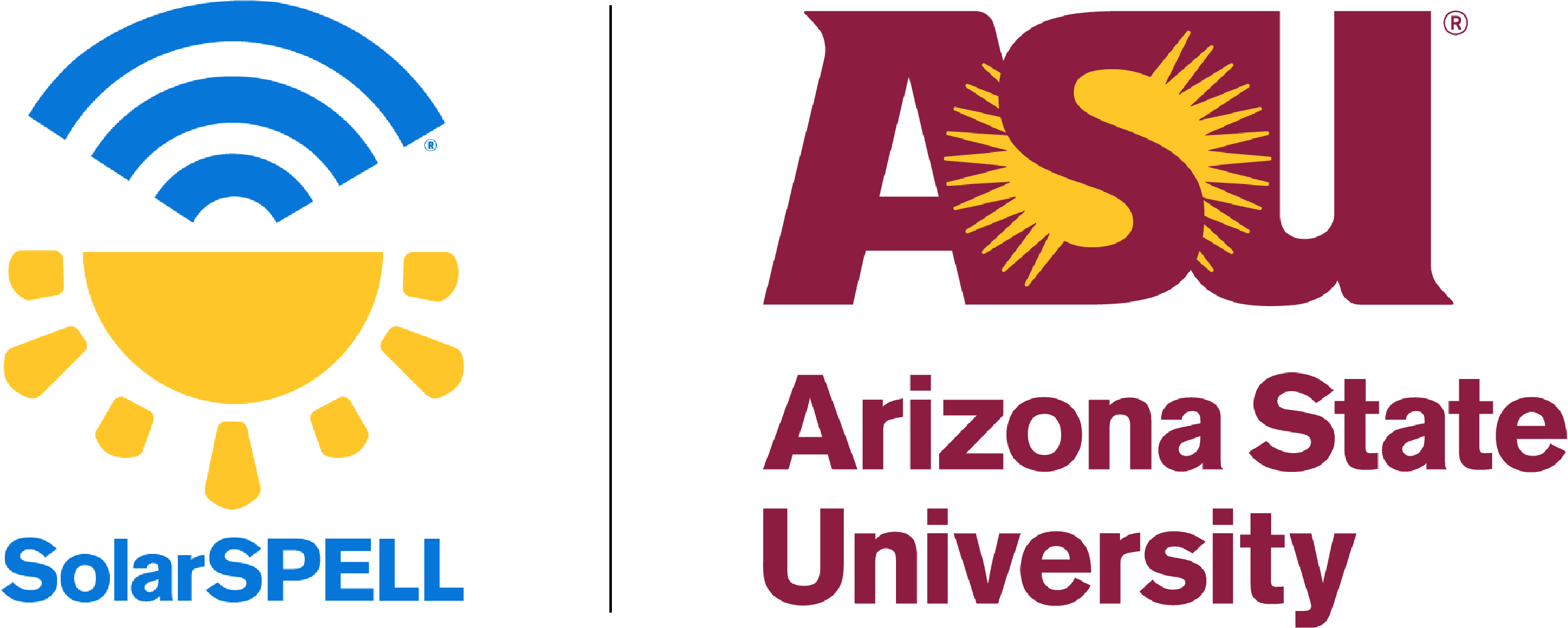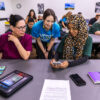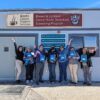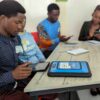Sarah, a graduate student from ASU’s School of Biological and Health Systems Engineering, joined SolarSPELL in 2017 and traveled with the SolarSPELL team to Rwanda. Her master’s applied project is focusing on adapting SolarSPELL for use in health care clinics and hospitals. Here are her musings:
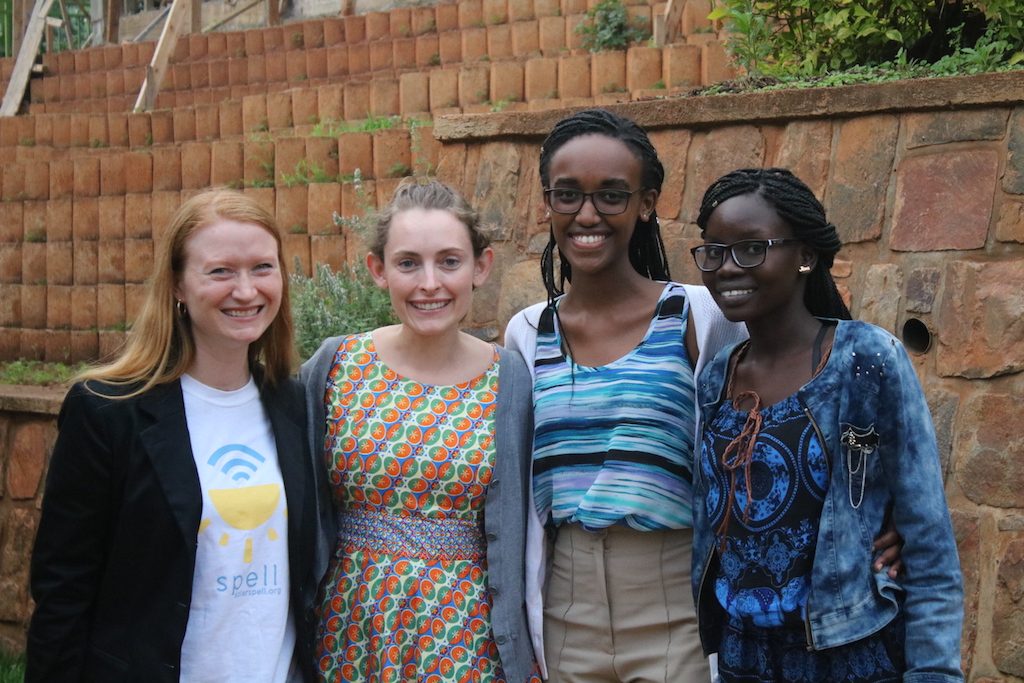
When I found out I was going to Rwanda with SolarSPELL, I was thrilled. Unfortunately, I was up at an ungodly hour (3am) preparing for a big project that was due, so I had to wait four more excruciating hours to share my excitement with everyone. Rwanda is a country I have closely followed, but never traveled to. Even when I was a Peace Corps volunteer in Tanzania and Rwanda was a mere $20 and 16-hour bus ride away (quite short in my Peace Corps travel world), I never made it. However, I have been very interested in the development of Rwanda over the past 24 years, watching and studying it closely. To get the opportunity to see it for myself was a dream come true.
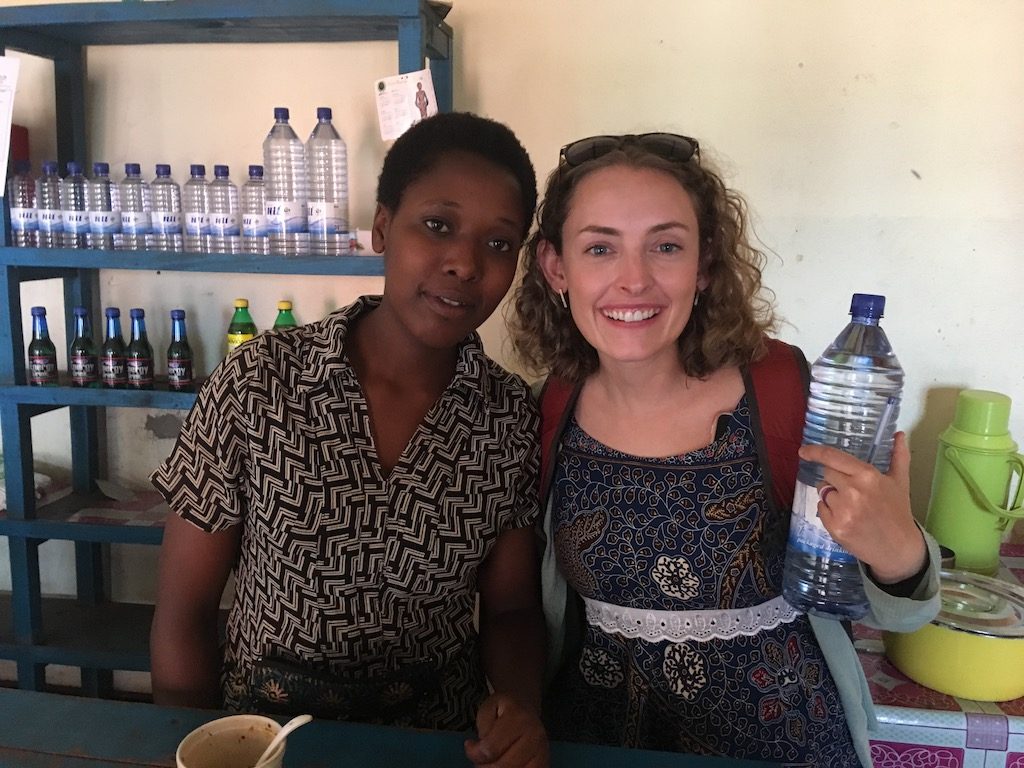
Now, I have traveled quite a bit throughout Africa and was so surprised to find the streets of Kigali spotless. In Rwanda, plastic bags are banned and on the last Saturday of every month the country comes together to make their communities better. The term for this is Umuganda. This community service can be in the form of picking up trash, helping a neighbor with a difficult task, or infrastructure development. Beyond the cleanliness, other striking differences between Kigali and some of the other places I have traveled to within Africa include the lack of hasslers, street vendors and stray dogs. The Gallup Global Law and Order Report consistently ranks Rwanda as one of the safest countries, not just in Africa, but in the world.
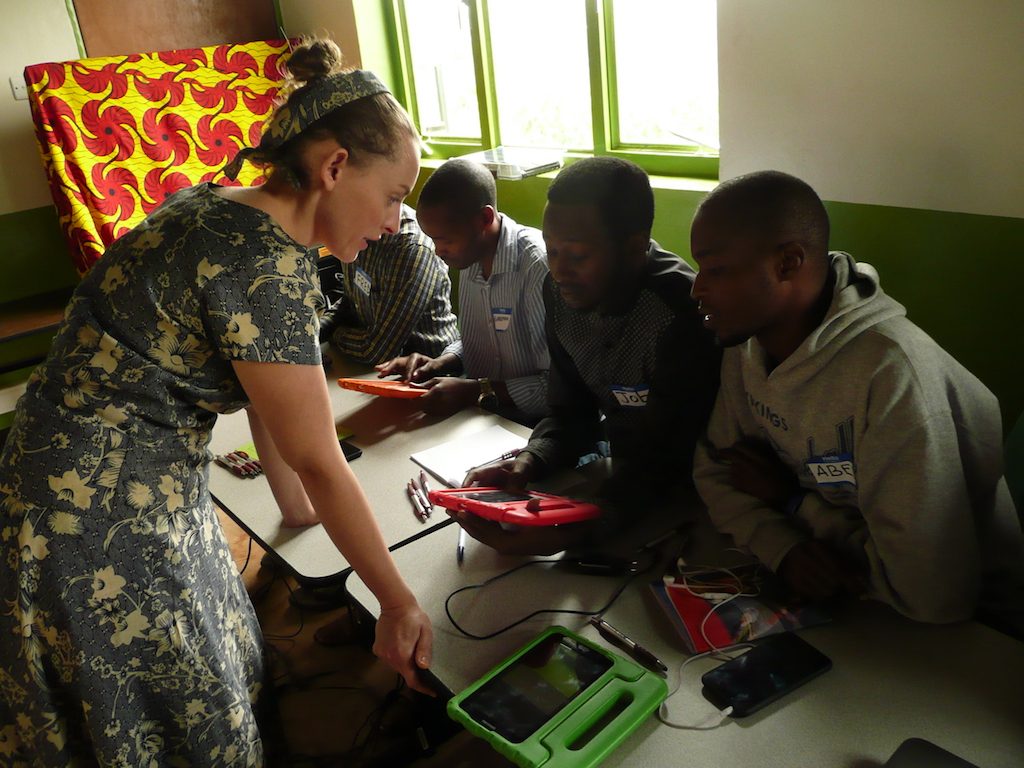
In my role with SolarSPELL, I am researching the validity of adapting the SolarSPELL library, which is primarily aimed for use in schools, into a library that would be beneficial for use in health care clinics and hospitals. Specifically, I am looking into curating and creating content for hospital technicians (more formally known as biomedical engineering technicians, or BMETs). The World Health Organization estimates that 80% of hospital equipment in low- and middle-income countries is donated. Another study conducted by Duke University found that only 2.5% of this donated equipment remains functional after five years. Of course, this has a negative effect on healthcare. Patients may have to travel long distances just to receive basic treatment, something not every patient has the means to even do. On top of this, equipment is oftentimes not calibrated properly, resulting in incorrect diagnoses and wrong treatments. Broken equipment in hospitals leads to diminished efficiency and lower revenues. The non-functioning equipment is typically due to a lack of trained professionals, a lack of spare parts, and a lack of resources. SolarSPELL can certainly help with the lack of resources.
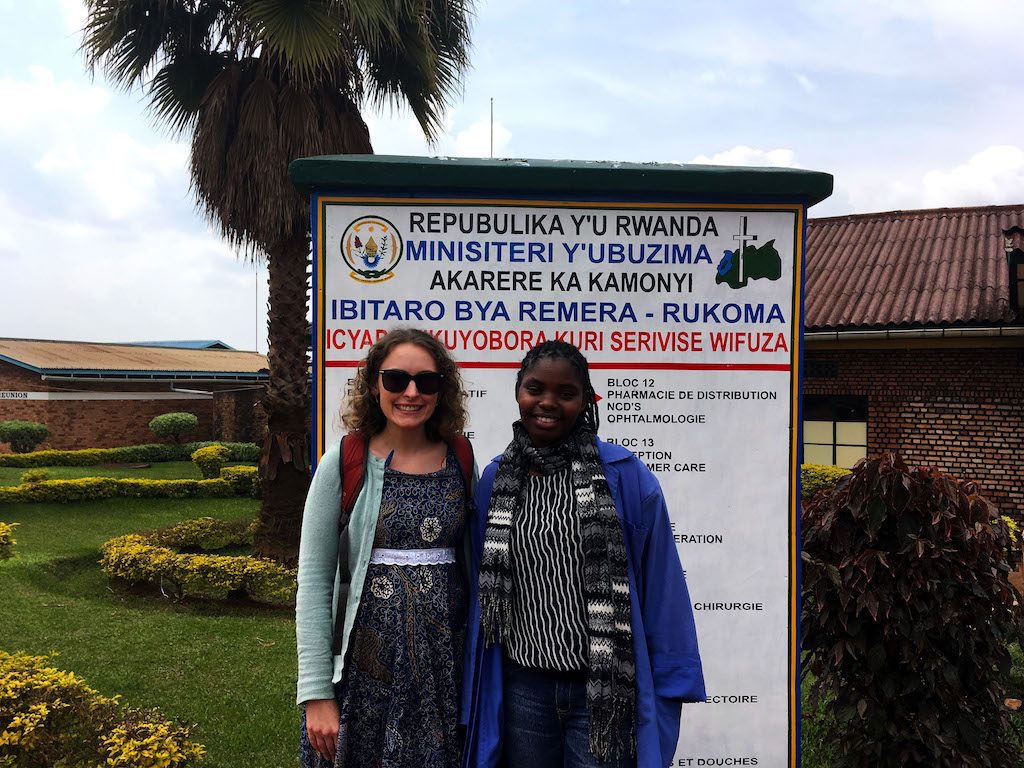 During my time in Rwanda, I had the opportunity to travel to a rural hospital and speak with Judith, a trained BMET, who is the only BMET (and all-around maintenance guru) for her hospital and the 13 other health centers in her district. She stated that one of her greatest challenges hampering her day-to-day work is not having the maintenance manuals for many of the machines within the hospitals.
During my time in Rwanda, I had the opportunity to travel to a rural hospital and speak with Judith, a trained BMET, who is the only BMET (and all-around maintenance guru) for her hospital and the 13 other health centers in her district. She stated that one of her greatest challenges hampering her day-to-day work is not having the maintenance manuals for many of the machines within the hospitals.
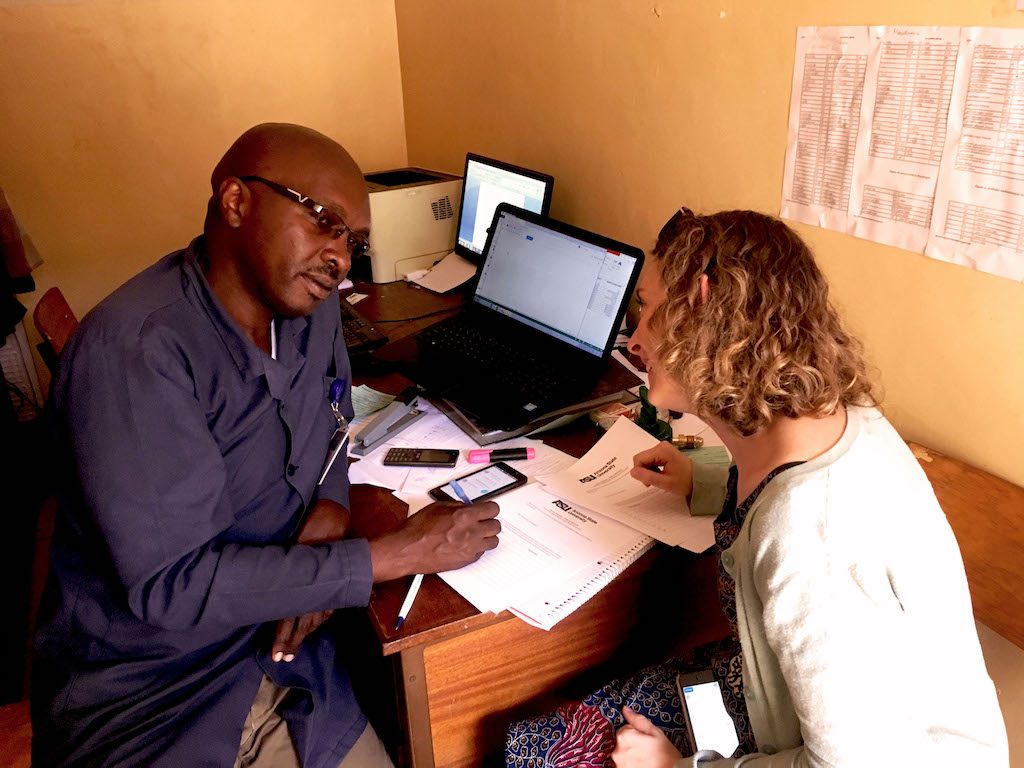
Christian, another BMET in Kigali who I had the opportunity to speak with, expressed a desire for resources that would allow him to have continued training. This semester, I will be working to make a SolarSPELL library specifically for these BMETs. This library will include instructional videos, equipment manuals and continued training lessons. The ultimate goal is to give these BMETs the resources they need to more effectively repair this lifesaving equipment.
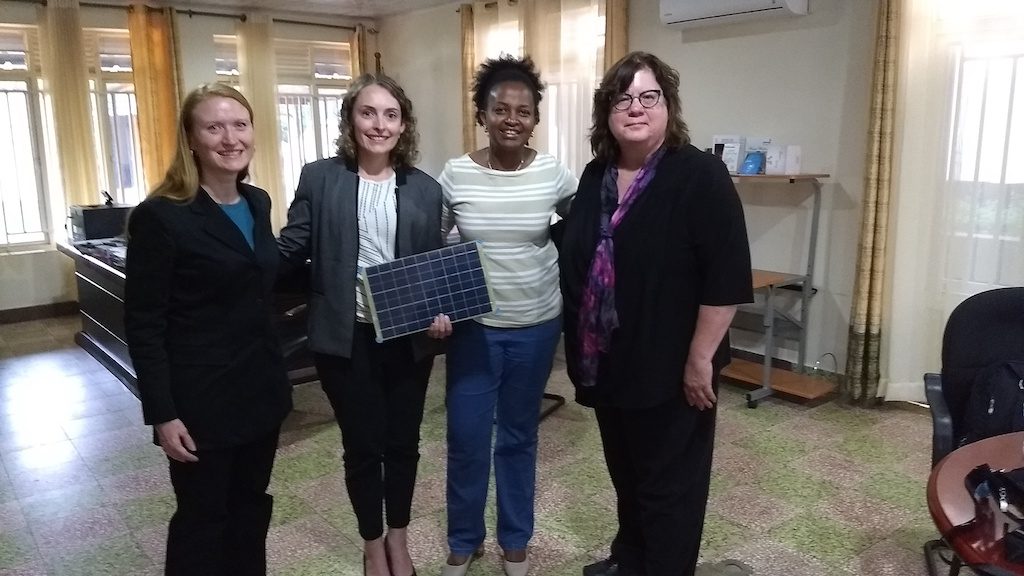
Dr. Hosman, Dr. Condo, Dr. Kammerlocher, and I
During one of the last days I was in Rwanda, I was able to attend a meeting with the Director General of the Rwanda Biomedical Center (under the Ministry of Health), Dr. Condo. In this meeting, we presented SolarSPELL to her. In the middle of our demo, the electricity in the Ministry of Health building completely cut out. Much to the Director’s astonishment, we were able to continue our demo of SolarSPELL, reinforcing the utility of the device in all conditions. The Director General was very excited about the technology, and saw many other applications for it within her rural health centers. We are working with her team on this now, with more to come in the future.
